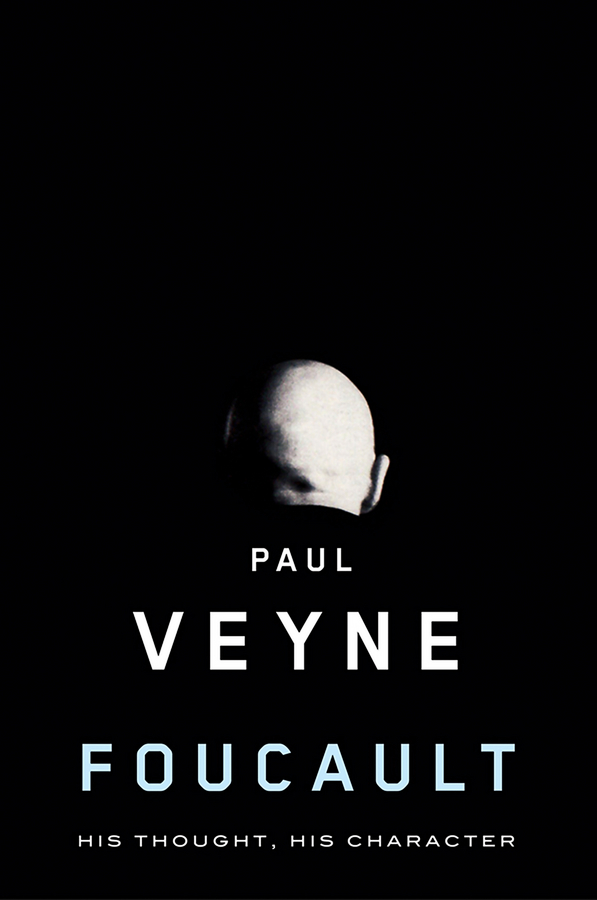Электронная книга: Paul Veyne «Foucault. His Thought, His Character»

|
Michel Foucault and Paul Veyne: the philosopher and the historian. Two major figures in the world of ideas, resisting all attempts at categorization. Two timeless thinkers who have long walked and fought together. In this short book Paul Veyne offers a fresh portrait of his friend and relaunches the debate about his ideas and legacy.‘Foucault is not who you think he is’, writes Veyne; he stood neither on the left nor on the right and was frequently disowned by both. He was not so much a structuralist as a sceptic, an empiricist disciple of Montaigne, who never ceased in his work to reflect on'truth games', on singular, constructed truths that belonged to their own time. A unique testimony by a scholar who knew Foucault well, this book succeeds brilliantly in grasping the core of his thought and in stripping away the confusions and misunderstandings that have so often characterized the interpretation of Foucault and his work. Издательство: "John Wiley&Sons Limited"
ISBN: 9780745683782 электронная книга Купить за 5459.42 руб и скачать на Litres |
Другие книги автора:
| Книга | Описание | Год | Цена | Тип книги |
|---|---|---|---|---|
| When Our World Became Christian. 312 - 394 | This short book by one of France's leading historians deals with a big question: how was it that Christianity, that masterpiece of religious invention, managed, between 300 and 400 AD, to impose… — John Wiley&Sons Limited, электронная книга Подробнее... | электронная книга |
Paul Veyne
Paul Veyne, born 13 June 1930 in
Biography
From an ordinary background, which he described as "uncultured", Veyne took up archaeology and history by chance, at the age of eight, when he discovered a piece of an
The family having moved to
Having come to Paris for his
On the other hand, the bad treatment of the Algerians at the hands of the colonials revolted him in equal measure to the atrocities of the Nazis. Once again, however, his shock was neither social nor political, but moral.
Paul Veyne studied at the École Normale Supérieure in Paris 1951-55. He was a member of the École française de Rome 1955-1957, whereupon he settled in Aix-en-Provence as a professor at the Université de Provence. It was in his years in Aix he published his provocative "Comment on écrit l'histoire", an essay in the epistemology of history. [ Paul Veyne "Comment on écrit l'histoire : essai d'épistémologie", Le Seuil 1970.] At a time when the dominant trend in French historiography favored quantitative methods, Veyne's essay unabashedly declared history to be a "true tale". Through his essay he became an early representative for the interest in the narrative aspects of scientific history.
His monograph on euergetism from 1975 ("Le pain et le cirque"), however, demonstrated that Veyne's concept of narrative somwhat differed from its common use, and that his differences with the hegemonic Annales school was smaller than what had seemed to be the case in 1970. [ Paul Veyne "Le pain et le cirque", Le Seuil 1976.] The book is a comprehensive study of the practice of gift-giving, in the tradition of
In 1975 Veyne entered the Collège de France thanks to the support of
In 1978 Veyne's epistemological essay was reissued in tandem with a new essay on
Paul Veyne now lives in
Bibliography
*"Comment on écrit l'histoire : essai d'épistémologie", Le Seuil, 1970.
*"Le pain et le cirque", Le Seuil, 1976.
*"L'inventaire des différences", Le Seuil, 1976.
*"Les Grecs ont-ils cru à leurs mythes ?", Le Seuil, 1983.
*"L'élégie érotique romaine", Le Seuil, 1983.
*"Histoire de la vie privée", vol. I, Le Seuil, 1987.
*"René Char en ses poèmes", Gallimard, 1990.
*"La société romaine", Le Seuil, 1991.
*"Sénèque, Entretiens, Lettres à Lucilius", revised translation, introduction and notes, Laffont, 1993.
*"Le quotidien et l'intéressant", conversations with Catherine Darbo-Peschanski, Hachette, 1995.
*"Les mystères du gynécée", in collaboration with F. Frontisi-Ducroux and F. Lissarrague, Gallimard, 1998.
*"Sexe et pouvoir à Rome", Tallandier, 2005.
*"L'empire gréco-romain", Le Seuil, 2005.
References
[This article is a translation of part of the article in French Wikipédia.]
External links
* [http://www.college-de-france.fr/default/EN/all/ins_pro/p1001869038511.htm Paul Veyne sur le site du collège de France]
Источник: Paul Veyne
См. также в других словарях:
Foucault, Michel — ▪ French philosopher and historian Introduction in full Paul Michel Foucault born October 15, 1926, Poitiers, France died June 25, 1984, Paris French philosopher and historian, one of the most influential and controversial scholars of the post … Universalium
Character mask — Part of a series on Marxism … Wikipedia
Foucault + fold — by Tom Conley The most terse and telling formulation of the fold is found in Foldings, or the Inside of Thought (Subjectivation) , the last chapter of Deleuze s Foucault that examines Foucault s three volume study of the history of sexuality … The Deleuze dictionary
Foucault + fold — by Tom Conley The most terse and telling formulation of the fold is found in Foldings, or the Inside of Thought (Subjectivation) , the last chapter of Deleuze s Foucault that examines Foucault s three volume study of the history of sexuality … The Deleuze dictionary
Foucault, Michel — (1926–1984) French historian and philosopher. Born in Poitiers, Foucault was educated at the École Normale Supérieure in Paris, taught in Germany, Sweden, and Algiers, and held chairs at Clermont Ferrand and Vincennes, before being appointed… … Philosophy dictionary
Michel Foucault — Full name Michel Foucault Born 15 October 1926 Poitiers, France Died 25 June 1984(1984 06 25) (aged 57) Paris, France … Wikipedia
